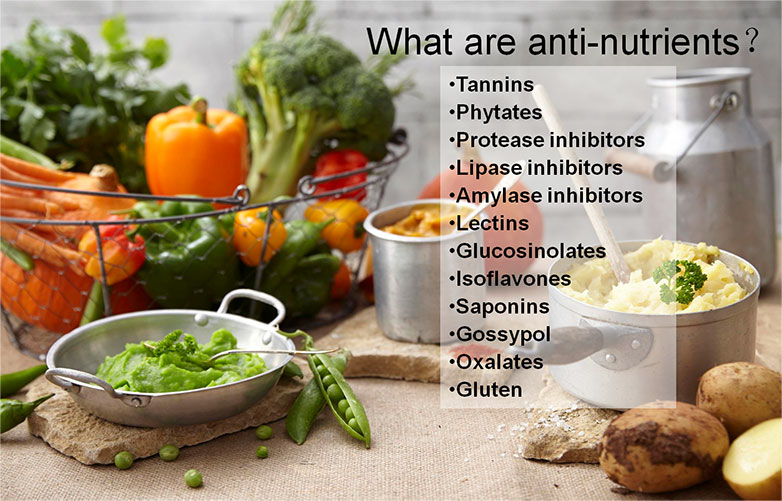Anti-nutrients are plant compounds found in foods that can interfere with the absorption of beneficial nutrients. The key anti-nutrients are phytates, tannins, lectins, oxalates, etc.. The anti-nutrients protect tasty edibles from being devoured to the point of extinction in nature. Though the amount of anti-nutrients can be reduced by many traditional methods of food preparation including fermentation, cooking, and malting, there are still many be kept in some foods. Eating excessive anti-nutrients may pose potential risks, such as gut issues, inflammation, arthritis, and brain fog. Therefore, accurate and sensitive methods are urgently needed for the analysis and estimation of anti-nutrients in foods.

Lifeasible is a leader in food nutrient analysis. We provide a wide range of anti-nutrient analysis using robust and advanced technologies. These techniques include colorimetric determination, ion exchange chromatography, high-performance liquid chromatography (HPLC), nuclear magnetic resonance (NMR), etc.. Our tests cover a wide range of anti-nutrients, including but not limited to:
- Tannins – Tannins are a class of antioxidant polyphenols that may bind to proteins and other inorganic molecules and impair the digestion of these nutrients. They commonly occur in tea, coffee, and legumes.
- Phytates – Phytates, also known as phytic acids, can chelate metal ions (iron, calcium, copper, magnesium, and zinc) making them unavailable for absorption. Phytate also inhibits the activities of digestive enzymes pepsin, trypsin, and amylase. Amylase is required for the breakdown of starch, while trypsin and pepsin are involved in the breakdown of protein. Phytates are mainly found in grains, nuts, soybeans, and seeds.
- Protease inhibitors – Protease inhibitors lower the ability of protease to convert protein to amino acids. Protease inhibitors are widely distributed among plants, especially in seeds, grains, and legumes.
- Lipase inhibitors – Lipase inhibitors, such as tetrahydrolipstatin, may interfere with the activity of enzymes, such as lipases, which catalyze the hydrolysis of some lipids and fats.
- Amylase inhibitors – Amylase inhibitors are usually present in beans. They prevent the action of enzymes that break the glycosidic bonds of starches and other complex carbohydrates, preventing the release of simple sugars and absorption by the body.
- Lectins – Lectins not only bind to certain carbohydrates with high affinity leading to allergic reactions, but also interfere with the absorption of calcium, iron, phosphorus, and zinc. Lectins are found in all food plants, especially in seeds, legumes, and grains.
- Glucosinolates – Glucosinolates are widely found in cruciferous vegetables, e.g., broccoli, Brussels sprouts, and cabbage. Glucosinolates have been shown to prevent the absorption of iodine and may have a negative effect on thyroid activity.
- Isoflavones – Isoflavones are phytoestrogens that may influence human or other animals.
- Saponins – Saponins appear in legumes and whole grains. Saponins may cause inflammation reactions by inhibiting the activity of certain digestive enzymes.
- Gossypol – Gossypol is a phenol derivative that has many negative effects. The harmful effects include inhibition of a variety of enzymes, reduction of potassium levels, protein absorption, and contraception.
- Oxalates – Oxalates, also known as oxalic acids, are mainly present in green leafy vegetables and tea. They bind to calcium and prevent it from being absorbed.
- Gluten – Gluten is a protein that may cause intestinal permeability (i.e. leaky gut). Glutens are found in wheat, barley, rye, and oats.
With years of experience in anti-nutrient testing, as well as cutting-edge equipment, we provide you with accurate analytical data for anti-nutrients. Our personalized services for anti-nutrient analysis are featured with short turnaround times, competitive prices, as well as accurate and sensitive results. Welcome to contact us for inquiries or further information. We are more than happy to help you.
For research or industrial raw materials, not for personal medical use!
